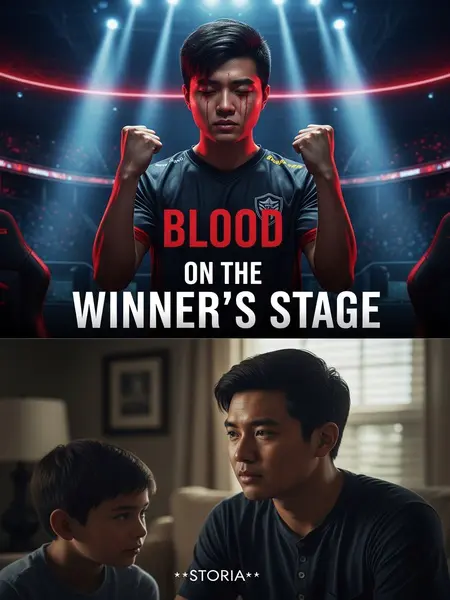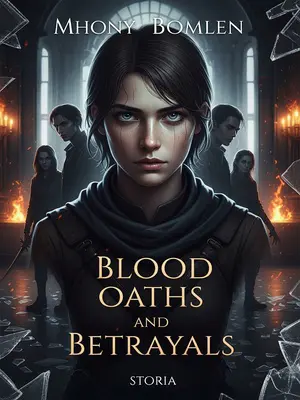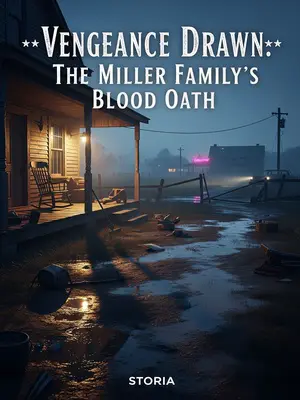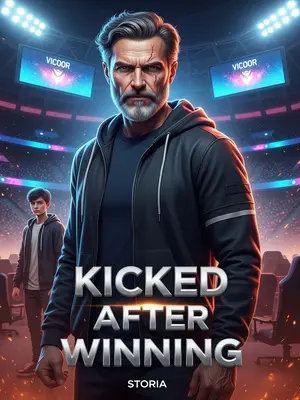Chapter 1: A Champion’s Spotlight, a Family’s Shadow
The roar of the crowd rattled the stage lights as Doublelift’s crosshair snapped onto his final target. In that instant, every heart in the arena skipped a beat. On streams and onstage, he electrified the audience—each headshot, every clutch outplay sent Twitch chat spiraling into chaos. Even the casters’ voices cracked, running out of new ways to praise him. Whenever his name appeared on Reddit or in post-game interviews, it was always that same breathless awe: unstoppable, mechanical god, legend. Fans bombarded him with memes and highlight reels like confetti, and to the world, he was the guy who simply couldn’t lose.
But behind the screens and the spotlight, there’s a darkness no highlight reel can erase. Peter Peng, known to millions as Doublelift, carried a pain that never made it onto ESPN or Twitter. The image of the untouchable superstar hid something raw, something private—a storm brewing where the cameras never reached.
In stark contrast to his onstage heroics, Peter’s older brother had committed an unthinkable act—he stabbed their parents in a fit of rage.
No one watching those big LCS plays could ever imagine the pain simmering behind the headlines. It was the kind of tragedy that left people speechless—how could two brothers raised in the same home end up worlds apart? The story chilled even the most jaded news junkies, people who thought they’d seen it all.
Two brothers from the same family, and yet their lives split down opposite roads.
It felt almost impossible to believe. On one side: a household name with millions of fans. On the other: a man whose name would become a breaking news headline for the worst reason imaginable. It was a fracture so deep, it seemed like two universes had collided beneath the same roof.
March 31, 2018. California, USA.
It was a chilly, quiet night in an upper-middle-class suburb—the kind of place where American flags fluttered from porch railings, and the air still smelled faintly of someone’s backyard barbecue. Neighbors waved while watering their lawns; kids rode bikes until dusk. You might hear a coyote out past the fences, but sirens at midnight? Never. Until everything changed that night.
A 30-year-old man stabbed his parents in a fit of rage, shattering the peace of the block.
No one heard a scream in time; no one saw it coming. It was the kind of crime that made people double-check their door locks and hug their kids a little tighter. There was no warning—a home, a family, torn apart in an instant.
Afterward, he ran into the street, the weapon still in his hand. Shocked neighbors immediately called the police.
Neighbors who’d shared cups of coffee or watched Fourth of July fireworks with the Pengs stared in disbelief as Eric Peng, still gripping the bloodied knife, stumbled beneath the humming streetlights. Cell phones flashed—frantic calls to 911, trembling voices trying to explain what they’d seen. Texts pinged across neighborhood group chats and the Nextdoor app, the story spreading before the sirens even arrived. No one ever imagines their quiet street will make the news, but here it was: sirens, flashing red and blue lights, the whole block suddenly awake.
Police tape fluttered in the cold breeze, casting yellow shadows across the Pengs’ perfectly trimmed lawn. By the time officers arrived, Eric had already made it to a nearby highway entrance. As police approached, he tried to run straight into oncoming traffic. The officers reacted in a split second, managing to restrain him before another tragedy could unfold.
The chase was frantic—squad cars screeching to a halt, officers sprinting over asphalt, commands echoing off concrete barriers. Eric made a wild dash for the highway, his mind somewhere far out of reach. Patrol cars blocked the ramp just in time; two officers tackled him, wrestling the knife away as passing cars slowed to gawk. Quick-thinking cops prevented an even greater disaster.
Eric Peng—a Chinese-American—became the name on everyone’s lips.
Eric’s name hit local news broadcasts within hours. Anchors stumbled over pronunciation, but the shock in their voices needed no translation. For neighbors, teachers, coworkers, it was almost too much to process: Eric Peng, the quiet, polite kid who’d grown up on their street, was now forever linked to an unthinkable act.
His mother died at the scene. His father was critically wounded and rushed to the hospital for emergency treatment.
Paramedics worked desperately on the front lawn, floodlights throwing everything into harsh relief. Linda Peng, the mother, didn’t survive. George Peng, the father, clung to life as EMTs loaded him into the ambulance, neighbors whispering prayers or simply standing in stunned silence. Later, news vans would trample the grass, but in that moment, shock and grief hung heavy in the air.
Inside, police found a family photo, now stained with blood. In that photo, along with Eric and his parents, was another familiar face: Peter Peng.
On the mantle, amid the chaos, lay a framed photo—a family beaming in front of the Golden Gate Bridge. The glass was cracked, the frame smeared red. Eric, younger and smiling; his parents, arms wrapped around him; and at the edge, a teenager with a bright, hopeful grin—Peter. The officers exchanged glances. This story was about to get even bigger.
But Peter Peng is better known by another name to millions: Doublelift—the top ADC in North American League of Legends, sometimes called the “North American Uzi.”
In the esports world, Peter is a celebrity. Mention “Doublelift” and watch the chat explode: #GOAT, #NAHOPE, #KING. He’s the guy you see onstage at Madison Square Garden, trophy in hand, confetti raining down. Fans line up for hours for a selfie; analysts break down his every move like NFL quarterbacks. His name is synonymous with North American League of Legends greatness.
Among his closest friends, though, he’s just Peter. Teammates call him “DL” or “Peter,” the guy who’s always first in and last out of practice. He’s the backbone, the veteran, the one everyone looks to when the pressure’s on.
When Forbes released their 30 Under 30 lists, Peter’s face appeared in both the elite and gaming sections—a double honor no other pro gamer had ever achieved. For a first-generation kid from a strict household, it was the ultimate validation: you made it, you belong, you did something that matters.
From sold-out stadiums in Los Angeles to international tournaments in Berlin and Seoul, Peter’s rise was meteoric. Endorsement deals, fan mail from every corner of the world, a bank account his parents could hardly have imagined. For every kid dreaming of making gaming their life, Peter was living proof it could happen—and then some.
So how did two brothers from the same family end up on such drastically different paths—one chasing fame, the other tragedy?
It’s the question everyone asks, the one that lingers in every article and podcast: how does a family produce both a hero and a headline for all the wrong reasons? What makes one brother a star and the other a cautionary tale? It’s a puzzle that haunts everyone who hears about it.
The answer lies in Peter’s upbringing.
The roots run deep. To understand how things split, you have to look back—before the spotlight, before the tragedy, to the house where it all started.
Doublelift’s father, George Peng, and mother, Linda Peng, were both from Shanghai. They were among the first wave of Chinese immigrants to the U.S., building their fortune through relentless hard work and perseverance.
George and Linda arrived in America chasing the dream. They took odd jobs, pinched pennies, and worked every holiday shift they could. Over the years, they saved enough for a modest home, and eventually, with sheer grit, they climbed into the middle class. They never forgot where they came from—or what it took to get there.
Their experiences convinced them that diligence could change destiny. So, they raised their sons with “tiger parenting”—a strict, high-pressure style focused on academics and discipline. The term exploded in American pop culture after Amy Chua’s controversial book, and in the Peng home, it was a daily reality.
Like many immigrant parents, George and Linda believed hard work and discipline could overcome any obstacle. Other families might let their kids run wild, but not the Pengs. Report cards were scrutinized, chores never skipped, and talk of careers started early—doctor, engineer, something prestigious. Failure was not an option.
To help their sons integrate, the Pengs enrolled them in public schools with all-English instruction from a young age. But while the language changed, the strict traditional parenting style didn’t budge.
From day one, Peter and Eric were in classrooms with kids named Jake, Sarah, and Jamal. At home, though, tradition ruled. Dinner conversations bounced between Chinese and English, but expectations stayed rock-solid. No sleepovers, no video games on school nights, no excuses for a B. The Pengs refused to let American culture dilute their standards.
Every test had to be an A; entertainment was strictly limited. If the boys wanted TV, only the evening news was allowed. Their parents hoped their sons would become perfect little honor roll robots.
While friends swapped Pokémon cards or watched Saturday morning cartoons, Peter and Eric stared at algebra and SAT prep books. TV? Only if it was the six o’clock news—preferably PBS. Their parents saw it as building discipline, but to the boys, it felt like living in a pressure cooker.
But kids aren’t robots—they need to blow off steam. For the Peng brothers, that outlet was computer games.
Every kid needs an escape. For Peter and Eric, it was the glow of a computer screen. It started with sneaking a few minutes after homework, then turned into late-night marathons when the house was quiet. In those digital worlds, they could laugh, compete, and—for a while—forget the weight of expectations.
It was actually Eric who first fell for gaming. The game that hooked him was the legendary “World of Warcraft.”
Eric was the pioneer. While other kids chased sports or band, he dove into the fantasy world of Azeroth. “World of Warcraft” became his sanctuary—a place to lead raids, build a virtual identity, and escape the constant grind of real life. He introduced Peter quietly, almost protectively.
After feeling the thrill for the first time, Eric soon brought his younger brother into the game. To his surprise, Peter showed a jaw-dropping talent. His in-game skills stunned Eric.
Peter took to gaming like he was born for it. Within weeks, he was breezing through dungeons and PvP matches, sometimes even outplaying Eric. At first, Eric just watched in awe—then with a flicker of pride. For once, the younger brother wasn’t just keeping up; he was leading. It became their shared secret, a rare bond that brought them closer.
For Peter, gaming was pure joy—and greater happiness was just around the corner.
The feeling was electric. The game wasn’t just a pastime—it was freedom, expression, and belonging. And then, one birthday, something happened that changed everything.
On Peter’s birthday, Eric spent hours tinkering in his room. When he finally called Peter in, he was stunned—a brand new computer sat waiting. Seeing how much his younger brother loved gaming, Eric had used his part-time job earnings to build it just for him.
Peter’s eyes stung with tears he tried to hide, and he hugged Eric awkwardly—grateful, vulnerable, overwhelmed. In a family not big on hugs or heart-to-hearts, this was as close as they got to saying "I love you."
Who wouldn’t envy a brother like that?
Plenty of kids would kill for a sibling who built them a custom PC. Even Peter’s friends at school thought it was legendary. For a moment, it felt like the Peng brothers had figured out their own way to be a family—one pixel at a time.
Step by step, Peter was introduced to a new world by his brother.
That was the start of something big. Peter dove headfirst into gaming, discovering new worlds and new parts of himself. Eric was always there—sometimes as a guide, sometimes as a competitor, always as a fan. Every late-night session, every shared strategy, every hard-fought victory brought them closer. The world inside the screen made up for what they lacked outside it.
But this new world held more than just the excitement of games. A long, bitter family conflict was quietly brewing.
Behind every glowing monitor, real life pressed in. The arguments at home grew louder, the pressure higher. What started as an escape became a battleground—parents against sons, tradition against dreams, expectations against reality. The games gave them space to breathe, but the storm outside never really went away. And no one—not even the Peng brothers—could have guessed just how far that storm would go.













